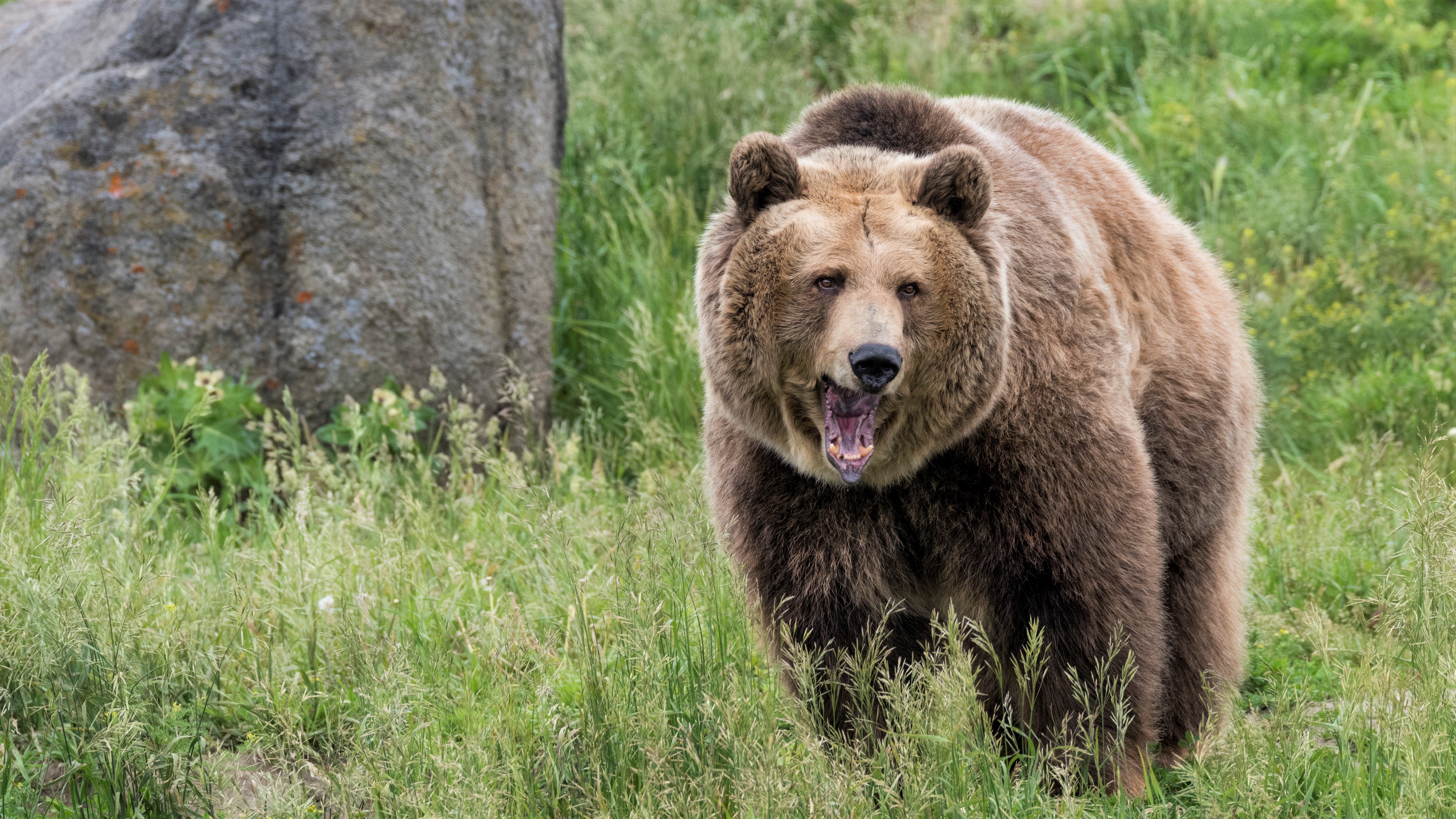Grand Teton tourists risk life and limb by interrupting grizzly bear's elk breakfast
Bears are fiercely protective of their kills

A group of tourists, including several children, have risked their lives at Grand Teton National Park by disturbing a grizzly bear feeding on an elk carcass at the roadside. Bears, like all wild animals, prefer to avoid contact with humans and will usually leave an area first if people are around, but they are fiercely protective of their food sources and may attack if they believe those sources are threatened.
They aren't just protective of their kills, either. Many authorities in the US and Canada close sections of trail and some campsites in late summer and early fall to allow bears to forage for berries in peace.
This particular incident was caught on camera by Instagram user Yellowstone Enthusiast and re-shared this week on account TouronsOfYellowstone, which calls out bad behavior at the park.
A post shared by TouronsOfYellowstone (@touronsofyellowstone)
A photo posted by on
This animal was clearly aware of its audience and distracted from its kill, looking up and vocalizing, but sometimes bears are so absorbed in feeding that they don't notice people approaching and can be taken by surprise.
As Bear Smart explains: "Bears, particularly adult brown bears, are not always aware of what is going on around them. A bear following a trail doesn’t always look ahead. He may be distracted by a yummy food source or may not be able to hear over the loud sounds of rushing water or blowing wind. A bear can literally blunder into an unsuspecting person."
Safety in bear country
The National Park Service (NPS) warns hikers recreating in bear country to be aware of their environment at all times. The best way to avoid an encounter is to hike in a group and make noise by talking among yourselves so bears know you are coming and can leave the area early.
If you spot a bear but it hasn't seen you, the NPS recommends taking a quick and quiet detour to avoid disturbing it. If the animal takes notice, back away slowly while talking in a calm voice or not at all. Despite the temptation, don't run; this will encourage the bear to chase, and they can run much faster than humans.
Advnture Newsletter
All the latest inspiration, tips and guides to help you plan your next Advnture!
"The vast majority of bear attacks have occurred when people surprised a bear. In this situation the bear may attack as a defensive maneuver," the NPS warns. "The bear may be protecting young or defending a carcass."
See our guide what to do if you meet a bear for more advice.
- Best hiking boots: the best footwear for tough terrain, tested and rated

Cat is Homes Editor at TechRadar and former editor of Advnture. She's been a journalist for 15 years, and cut her teeth on magazines before moving online. She helps readers choose the right tech for their home, get the best deals, and do more with their new devices.
